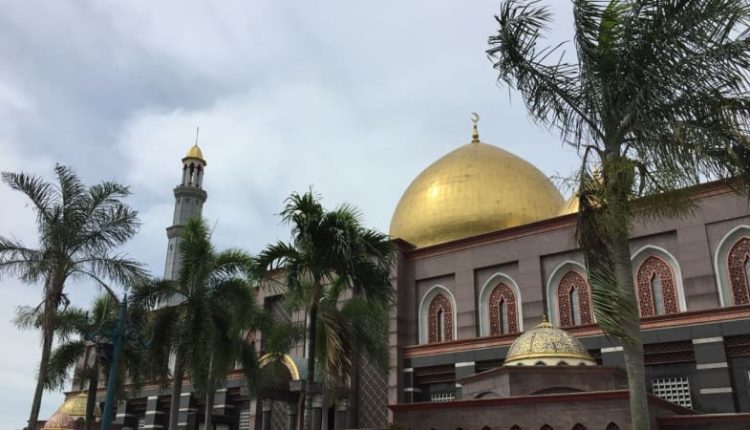Radicalization of Mosques Must Be Removed
By: Moh. Ikhsan) *
Merriam Webster’s dictionary means “radical” as the opinion or behavior of people who like extreme change, especially in government / politics. Whereas in the Oxford Dictionary, understand that ‘radical’ as a person who supports a political change or overall social change, a member of a political party that makes these efforts.
The Center for the Prevention of Radicalization Leading to Violence (2018) states that in the process of radicalization, people adopt extreme belief systems, including the desire to use, support and facilitate crime with the aim of promoting ideology, political projects or social change. While according to Bartol (2017) radicalization is the process of indoctrination of individuals so that he accepts the ideology and mission of certain radical groups. People who are indoctrinated in stages will excuse violent actions by groups that indoctrinate them.
The State Intelligence Agency (BIN) through its spokesperson, Wawan Purwanto, acknowledged the results of his agency’s research, which stated that 41 mosques in government offices and ministries exposed to radicalism were the development of the conclusions of the survey of the Pesantren and Community Development Association. However, his party clarified the information which was originally submitted by the Head of Sub Directorate of Directorate of 83 BIN, Arief Tugiman. Wawan claimed that BIN did not conclude that the 41 mosques were exposed to radicalism. The agency only identified speakers at the mosques which were included in the radical category.
Explanation of the 50 lecturers included in the radical category based on the contents of their lecture, he gave an example, it was seen from the habit of lecturers who cited verses of war and voiced their support for ISIS. Although included in the tolerable category, the lecturers deserve to be monitored. Wawan also said that BIN issued the survey results not to make noise. He said the survey results needed to be published to increase awareness only.
P3M and Rumah Kebangsaan also released a survey, in which there were 6 most popular or most radical topics found in Friday sermons at government mosques. Among the utterances of hatred, negative attitudes toward other religions, positive attitudes (acceptance) towards the khilafah, negative attitudes towards minorities, hatred of minorities and negative attitudes towards female leaders.
In addition, BIN has also found indications of the spread of radicalism in 7 campuses. The data is the result of a survey of 50 State Universities in 15 Provinces in Indonesia. However, the data on PTN in question is only submitted to the leadership of the University, I avoid things that harm the university.
Azyumardi Azra, Muslim Scholars and Professor of UIN Syarif Hidayatullah stated that the seeds of radicalism on campus grew because of the growing development of right-wing student organizations. Not only HTI, Student organizations such as the Campus Da’wah and Unity Institution of Action Indonesian Muslim students became the entrance to radical seedlings. Azra also added that university leaders must control campus facilities, such as mosques and meeting rooms. So don’t give it freely to students because mosques and even student centers can be used for radical activities.
The P3M also underlines that sermon surveys are radically charged, speeches of hatred, and intolerance are monitored to the extent of their Friday sermon activities. That is, it could be a mosque which indicated radicals were not really radical. Not all radicalism and radicalization processes give birth to violence, because the dynamics of personal life are indeed different. Individual relations and the surrounding environment, the process of adopting ideology and the level of trust in the use of violence for the purpose to be achieved are some of the many factors that drive radicalization.
Indonesia’s future depends on current efforts to prepare the next generation to have endurance in facing and counteracting radical notions that threaten the life of the nation. The Ministry of Education and Culture together with the Ministry of Religion and the National Counterterrorism Agency (BNPT) have also signed a memorandum of understanding on the prevention of radical understanding and intolerance in the school environment.
No less important is to provide a true understanding of democracy, that the democracy we embrace is Pancasila democracy and this must be well understood. Understanding of Pancasila must be encouraged at every level of education, because the true understanding of radicalism aims to undermine the ideology of Pancasila which is the basis of the state.
The phenomenon of mosques exposed to radicalism is also reinforced by research conducted by the Setara Institute. Director of Equivalent Research Institute, Halili stated that radicalism in Indonesia to the place of worship actually took place as a legacy of regime change in the reform era. After the reformation succeeded in overthrowing the new order, there was a lack of clarity between the limits of freedom and the protection of the public arena from ideological infiltration.
His party exemplified the practice of radicalism by spreading takfiri doctrine. Those who believe in this doctrine can easily call other people who are in opposition to their views as infidels. Its exclusive nature makes its followers tend to cover themselves up from differences.
This is what then destroys tolerance in Indonesian society which previously saw differences as something normal and ordinary. Halili also believes that the emergence of intolerance in society is what triggers the development of terrorism and radicalism in Indonesia.
To eliminate radicalism in the mosque environment, of course synergy between ministries and institutions is needed. This is because there are several factors that trigger the emergence of radicalism in Indonesia, such as understanding religion, injustice to poverty. Shallow and erroneous religious understanding is a major factor in the spread of radicalism to terrorism in Indonesia.
The author is a Student of Syarif Hidayatullah UIN Jakarta
